International
Noboa once again entrusts the Vice President of Ecuador to the vice president he appointed by decree
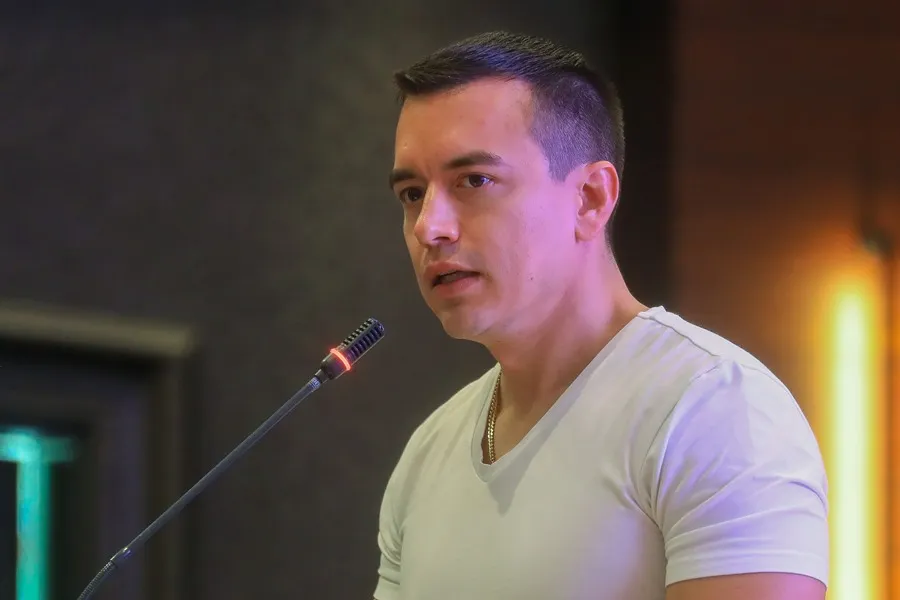
The President of Ecuador, Daniel Noboa, returned this Thursday to delegate – for the second time – the Presidency to the Secretary of Public Administration and Cabinet of the Presidency Cynthia Gellibert, whom he himself appointed by decree vice president in charge, in the face of the open confrontation he maintains with the vice president, Verónica Abad.
As he did last week, Noboa again issued a decree in which he announces that he is absent from the Presidency from Thursday to Sunday, to make an electoral campaign in search of his re-election in the elections of February 9, and during that period of time it will be Gellibert who will be in charge of the head of the State.
This action of the president of Ecuador is a matter of evaluation by the ordinary and constitutional justice at the request of the vice president, Verónica Abad, who claims to assume the presidential functions during the full period of the electoral campaign, in which according to the Constitution the head of state must ask for leave for being a candidate for re-election.
In his decree, Noboa argues that, although the Constitution determines that the Vice Presidency must assume the head of State in the event of the absence of the president, this “is not limited to the elected vice-president, but to the person who to date is exercising the functions of the Vice Presidency.”
Before appointing Gellibert as vice president in charge by decree, Noboa sent Abad to the Ecuadorian Embassy in Turkey, after a judge annulled the five-month suspension that the same Government had imposed on him. Until now, the vice president remains in Ecuador to claim to be the one who temporarily assumes the Presidency.
The new period of Gellibert with presidential powers began at 18:00 local time (23:00 GMT) this Thursday and is scheduled to end at 22:00 (03:00 GMT) next Sunday, time at which the debate between presidential candidates is expected to end where Noboa is summoned to participate.
After the debate, Noboa plans to travel to Washington to attend Donald Trump’s presidential inauguration, according to the Ecuadorian Presidency.
After the first assignment of the Presidency to Gellibert, Abad denounced a “coup d’état” and urged the Organization of American States (OAS) to apply the Democratic Charter, considering that the constitutional order had been broken because it had not received the presidential powers, as contemplated in the Ecuadorian Constitution.
In addition, he filed a protection action with which he seeks that the Justice annul the decrees in which Noboa appointed Gellibert as vice president in charge and delegated the Presidency to him. A court admitted the appeal on Friday, but did not accept some precautionary measures that Abad also asked for to suspend those effects immediately.
Controversies like this will be part of the analysis and evaluation of the electoral observation mission (EOM) of the European Union (EU) for the Ecuadorian elections, as anticipated on Wednesday by its leader, Spanish MEP Gabriel Mato.
The confrontation between Noboa and Abad began in the electoral campaign for the second round of elections for the extraordinary elections of 2023, and was reflected when he assumed the charges, when in one of his first decisions, the president sent the vice president to Israel as ambassador, with the mission of seeking peace between Israelis and Palestinians.
Abad has denounced Noboa for alleged political gender violence and has accused her of leading a harassment against her to force her to resign and thus avoid having to delegate the Presidency to her during the electoral campaign period, which runs from January 5 to February 6.
The titular vice president has also accused the Government of being behind the corruption investigation in the offices of the Vice Presidency that involves her son in a case where the Prosecutor’s Office also sought to indict Abad, but the National Assembly (Parliament) voted mostly against lifting the jurisdiction, although the ruling party voted in favor.
The general elections in Ecuador are called for Sunday, February 9 and, according to the polls published so far, Noboa and the candidate of the correismo Luisa González appear as prominent favorites to move on to the second round.
International
Arsenal stun Real Madrid at the Bernabéu to reach Champions League semifinals

Arsenal enjoyed a “historic night” on Wednesday after defeating Real Madrid 2-1 at the Santiago Bernabéu, knocking them out of the Champions League quarterfinals, midfielder Declan Rice said.
“It’s such a special night for this club, a historic night for this club,” said Rice, who scored twice in the first leg in London, speaking to TNT Sports.
The English international was named Man of the Match in both legs — the 3-0 win in London and the second leg in Madrid.
“It’s amazing. I knew we were on an upward trajectory and we’ve done incredibly well in this competition. We deserve it and we have full confidence in our coach. Reaching the semifinals is unbelievable,” Rice added.
International
DeSantis’ immigration crackdown sparks alarm in Venezuelan Communities in Doral
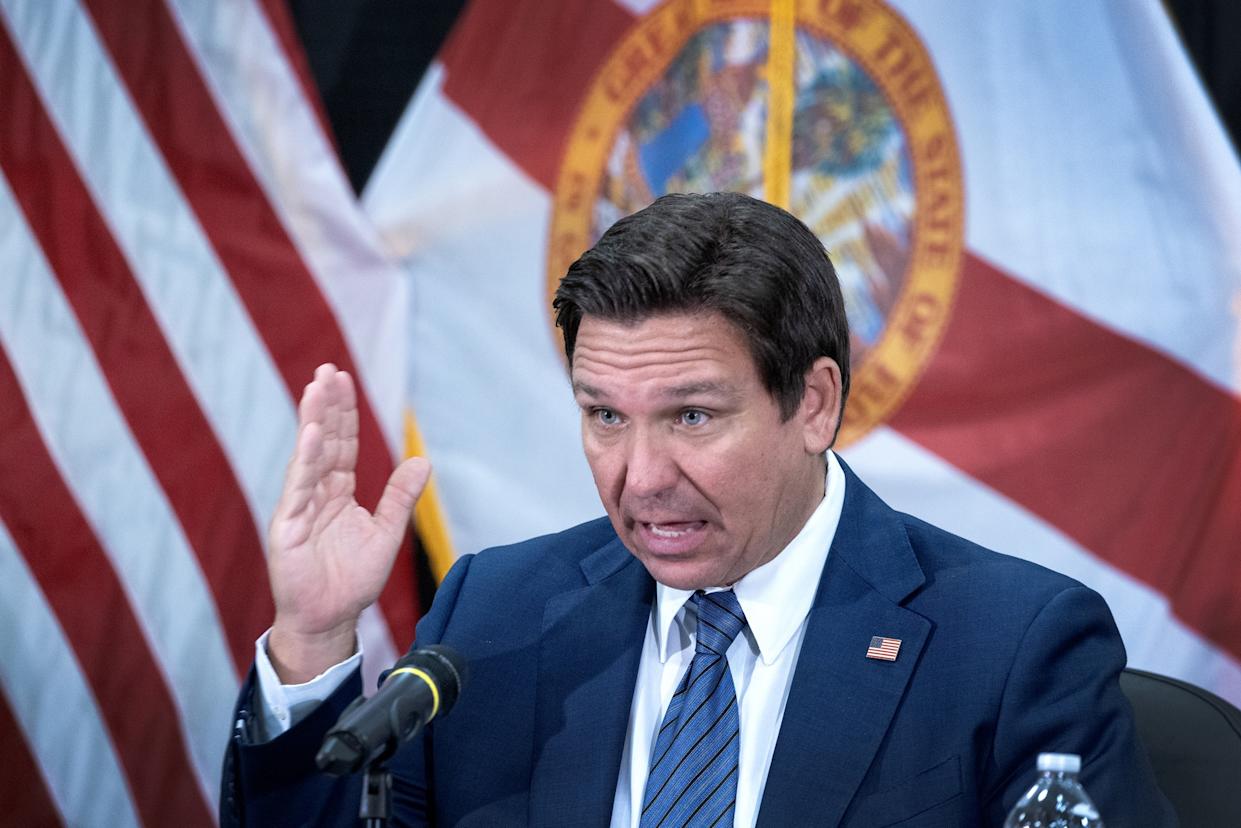
Florida, the U.S. state with the third-largest immigrant population, has become the most aggressive in targeting undocumented immigrants, largely due to pressure from Governor Ron DeSantis. This shift has led Latino-majority cities like Orlando and Doral to authorize their police forces to assist in immigration enforcement.
In Doral — part of the greater Miami area where 70.7% of residents are immigrants and 48% are of Venezuelan origin — the City Council is expected to approve a measure this Wednesday allowing local police to collaborate with Immigration and Customs Enforcement (ICE), despite opposition from neighborhood groups and human rights activists.
“It’s yet another betrayal,” said Susana Ríos, a 57-year-old Venezuelan woman currently under Temporary Protected Status (TPS), whose extension was denied by the White House and is now being challenged in court.
Meanwhile, José González, a 21-year-old immigrant, said he feels “abandoned.” He can’t stop thinking about the images of Venezuelans deported to El Salvador without due process. “We’re all in danger,” he warned.
International
Bogotá residents line up for yellow fever vaccine amid national alert
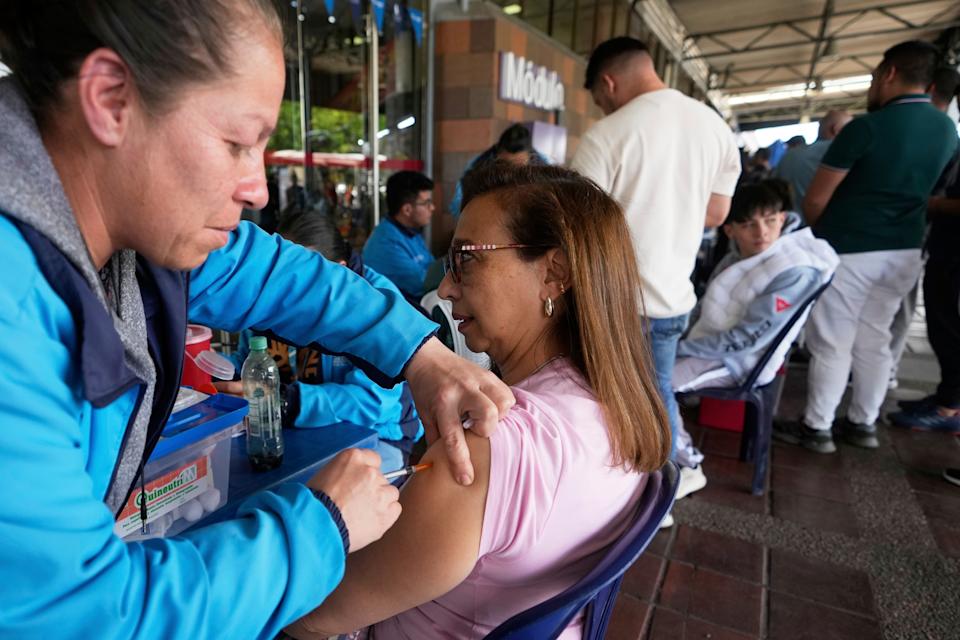
David Suárez went to a public health center in Bogotá on Wednesday to get vaccinated against yellow fever. It wasn’t originally in his plans, but he responded to a call made just hours earlier by President Gustavo Petro, who announced he will declare a health and economic emergency due to a new outbreak of the disease that has already left more than 30 people dead, mostly in the central-western region of the country.
“I got vaccinated for two reasons: first, for my own health because I’m traveling, and second, for a social reason — simply to follow the president’s guidance and be aware that this is a problem for all of us,” said Suárez, a 39-year-old teacher, to The Associated Press.
Like Suárez, dozens of people were waiting in line for the vaccine at Bogotá’s main intercity bus terminal, a key transportation hub especially crowded during travel seasons like Holy Week.
The teacher is traveling with his family to the department of Huila, which has activated a contingency plan due to its proximity to Tolima — the epicenter of the yellow fever outbreak — where a state of public calamity has been declared.
-

 International4 days ago
International4 days agoNightclub Collapse in Dominican Republic Claims 226 Lives
-

 Central America4 days ago
Central America4 days agoSpanish Ex-Congresswoman Calls for ‘Bukele-Style’ Security Policies in Europe
-
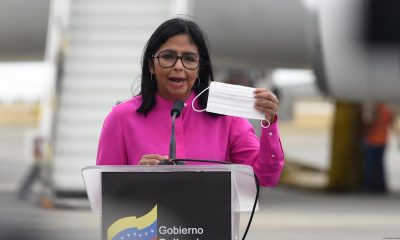
 International4 days ago
International4 days agoVenezuela accuses Guyana of “warlike intentions” after UK defense deal
-
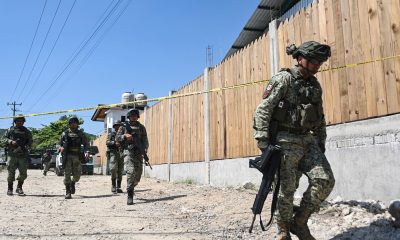
 International4 days ago
International4 days agoTrump Authorizes Military to Take Control of Federal Land Along U.S.-Mexico Border
-

 Central America2 days ago
Central America2 days agoHonduran Police Offer $135K for Tips Leading to the Arrest of Romeo Vásquez
-

 Central America1 day ago
Central America1 day agoPetro questions Ecuador’s vote, cites reports of military control and arrests
-

 International2 days ago
International2 days agoMPV Denounces Electoral Blockade as Secretary-General is Disqualified for May Elections
-

 International2 days ago
International2 days agoMaduro Plans Major Workers’ March on May 1st to Defend Venezuela’s Freedom
-

 International1 day ago
International1 day agoColombia: Search continues for missing limb of italian scientist found dismembered
-

 International3 hours ago
International3 hours agoArsenal stun Real Madrid at the Bernabéu to reach Champions League semifinals
-

 International3 hours ago
International3 hours agoBogotá residents line up for yellow fever vaccine amid national alert
-

 International4 hours ago
International4 hours agoMexico refuses to restore ties with Ecuador while Noboa remains in office
-

 International3 hours ago
International3 hours agoDeSantis’ immigration crackdown sparks alarm in Venezuelan Communities in Doral















